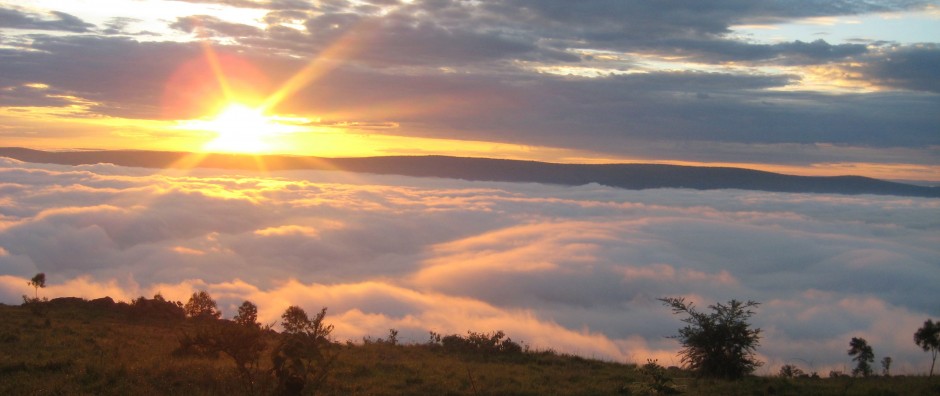As an American who grew up in the middle of the development and spread of technology, I cannot remember a time in America when records were not digitalized. While I have lived through a time that has seen many things digitalized (and indeed, things continue to be digitalized), I have very few memories of records that were not digital in format. I remember deciding what classes to take through a computer system, and getting my drivers license through a computer system. While I am sure that when I was young I had experiences with handwritten records, I have no real memories of them, except maybe at doctors offices, seeing charts written out by hand. People my age take these digital records for granted, and I think even older generations have gotten used to the ease of digital record keeping. So, coming to Tanzania I had not given a lot of thought to how school records would be kept. Obviously, since most of Tanzania has only minimal access to computers, and even worse than minimal access to the internet, records would written, but it wasn’t something I thought much about.
After I arrived, I began to realize the extent of the logistical challenges presented by not having digital records, especially in a country as spread out as Tanzania. The District Education Officer for Secondary Schools in Ngara is effectively supervises the running of 26 (or 27?) Secondary School in Ngara District alone. At its widest, I believe this is around 200 kilometers from end to end, and since many of the schools are very rural the dirt and gravel roads going to them are often very poor. Most of these schools do not have electricity, so most of the communication regarding their running happens over the phone. If papers or documents need to be delivered, they are delivered in person, as the mail is notoriously slow. Basically, I can’t even imagine what things were like prior to cell phones. Admittedly, there were less schools at that point, but the logistical challenges seem simply enormous, as land lines did not proceed cell phones in most of Tanzania: there was simply no way to get in touch with people directly, unless you went to see them.
My school is one of the schools in Ngara district (maybe there are 1-2 others) to have electricity, and also some computers. Actually, beginning in January we are supposed to have a computer lab with around 20 computers, but that’s beside the point for now. However, nearly all of our records are kept in paper files. While the computers do have Excel, nobody knows how to effectively keep records using it, and even if they did there is only one computer and since there are no proper administrators or administrative staff, (or program designed for keeping records) it would be impractical to keep the records digitally anyway. So, everything is written for hand.
This may not seem like that big a deal until you consider all the things that schools traditionally keep track of: student attendance, grades, school fees, enrollment, and so on. To effectively keep track of all these things without the aid of a computer system, you would probably need one person working full time, especially in a school as large as Ngara Secondary (about 700-800 students). That person does not exist, so record keeping is very poor. Mostly, student “monitors” keep track of attendance, and enrollment. The school burser (or accountant), who also teaches math (supposedly to every student at school) is in charge of school fees, and teachers mostly take care of grades.
Grades in most Tanzanian school are based entirely on the final exam, because teachers don’t track assignments over the course of the semester. This means that end of the semester a great deal of craziness ensues. Every subject (there are 10!) has a final exam. The teachers mark these exam, and compile lists of the student scores on each exam, organized by the “stream” or class they are in. For instance, I marked about 190 exams for Form III. These students are split into four streams, so for each stream I had to produce a sheet of paper with the scores for all the students.
At Ngara Secondary most teachers are then assigned a stream (about 50 students), and they have the task of creating student report cards. They must enter the final exam score for every subject into this report card, add it to the score from the exam from the first semester, average the score, and then figure out the class rank of each student for each subject based on these exams. And then, for each student, the report card needs to be copied by hand so that the school can have a record of the scores. It is a ridiculously time consuming process, not helped by the fact that there is no rhyme or reason to the order of the lists of exam scores, so one must scan the lists to find the student’s name for every report card that is written. On Friday, over the course of 8 hours, I entered the scores of all 10 subject exams to the report cards of one stream, working at a pace that left my Tanzanian colleagues amazed at my speed (most of them were going half as fast).
This experience simply blew me away. You simply don’t think about the time it takes to keep records on paper, especially when the organization is so bad. I can hardly imagine how the world ran before the advent of computerized record keeping, and I certainly hope there was more in the way of organizational structures.
